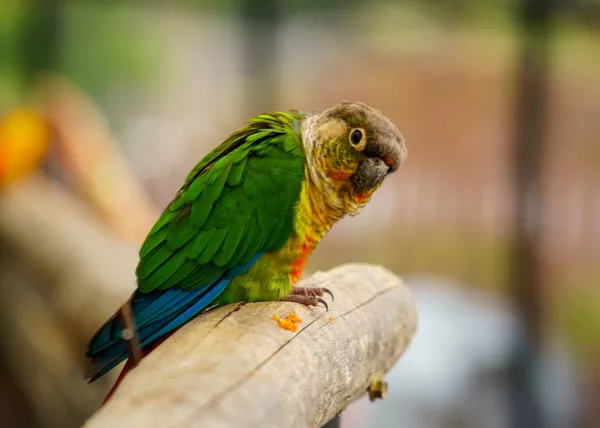African Grey parrots are revered for their intelligence, charming personality, and exceptional ability to mimic speech. These stunning birds have long been popular as pets due to their remarkable cognitive abilities and interactive nature. However, the decision to bring an African Grey parrot into your family should be a carefully considered one.
In this comprehensive guide, we will delve into whether African Grey parrots make good pets and outline essential factors you must know before welcoming these beautiful birds into your home.
Is an African Grey Parrot a Good Pet?
Do African Grey Parrots Make Good Pets? Undoubtedly, African Grey parrots are extraordinary pets for the right individuals or families. Their intelligence and ability to bond with their human companions make them stand out. African Greys are known for their exceptional mimicry skills, often learning an extensive vocabulary and even using words in context. Their ability to form strong bonds with their owners contributes to their reputation as great pets.
The Intelligence of African Grey Parrots
One of the most impressive qualities of African Grey parrots is their exceptional intelligence. These birds have the cognitive capacity of a young child, making them quick learners and great at problem-solving.
Their ability to mimic human speech and understand the meaning behind words is unparalleled in the avian world.
What Are the Cons of Owning an African Grey Parrot?
While African Greys possess remarkable qualities, there are downsides to consider. These parrots demand a significant amount of attention and mental stimulation. They can become distressed or develop behavioral issues if they feel neglected or bored. Additionally, their long lifespan (often 50-60 years) means they are a long-term commitment, requiring care and attention throughout their lives.
Are African Greys Hard to Take Care of?
Caring for an African Grey parrot requires dedication and effort. Their living environment needs to be kept clean, and they require a balanced diet that includes fresh fruits, vegetables, high-quality pellets, and occasionally nuts. Additionally, they need mental stimulation and interaction to thrive, which means spending time with them daily, providing toys, and engaging in training or games.
Are African Greys Aggressive?
African Greys are not known for being inherently aggressive, but like any pet, their behavior can be influenced by various factors. If they feel threatened or frightened, they might display defensive behaviors, which can include biting. Understanding their body language and creating a safe, comfortable environment is key to preventing aggressive tendencies.
Socialization and Bonding
African Grey parrots are highly social creatures and tend to form deep bonds with their human companions. Lack of social interaction can lead to stress and behavioral problems. Regular interaction and quality time spent with them can foster a strong and healthy bond.
What Problems Do African Grey Parrots Have?
Health issues, such as psittacine beak and feather disease (PBFD), as well as Aspergillosis, are some common concerns for African Greys.
Additionally, these parrots are prone to obesity, so a balanced diet and regular exercise are crucial in preventing health complications.
Training and Mental Stimulation
To keep African Grey parrots mentally stimulated and engaged, training is essential. Teaching them new words, tricks, or providing puzzle toys not only keeps them occupied but also strengthens the bond between the bird and its owner.
The Long Lifespan of African Grey Parrots
One of the most significant aspects to consider before bringing an African Grey into your family is their long lifespan. Their longevity means they will be a part of your life for decades, demanding a lifelong commitment to their care and well-being.
Conclusion
In conclusion, African Grey parrots can indeed make fantastic family pets, given the right circumstances. They are intelligent, social, and capable of forming deep bonds with their human counterparts.
However, they require consistent attention, mental stimulation, and a lifelong commitment to their care. Understanding their needs and behaviors is crucial to providing a nurturing and fulfilling environment for these remarkable birds. Therefore, before deciding to bring an African Grey into your family, it’s important to weigh the pros and cons to ensure a happy and healthy relationship between you and your feathered friend.
Related Topics:
African Greys Are Loud! Here Is What You Can Do
How do african greys show affection?
Can african greys lay eggs without mating?

























